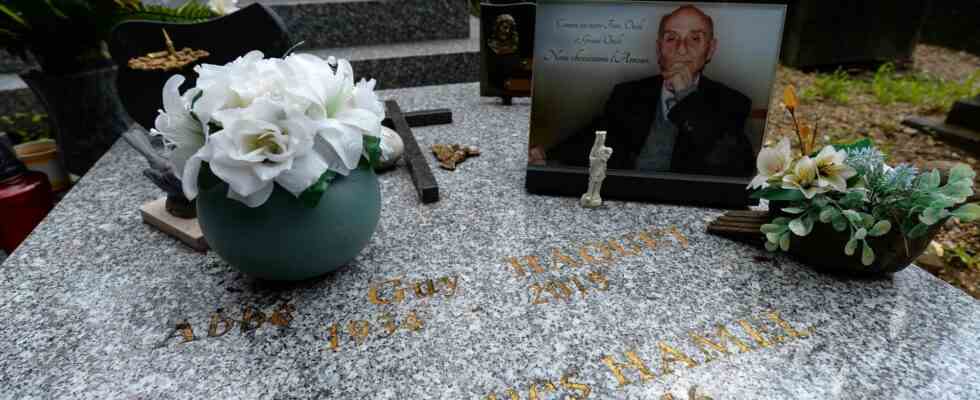Status: 09.03.2022 8:33 p.m
The Islamist assassination attempt on a priest shook France in the summer of 2016. Now three men who, according to the court, helped prepare the attack, have been sentenced to long prison terms.
In the trial of an Islamist assassination attempt on a priest in France, a Paris jury has sentenced three defendants to long prison terms. According to media reports, the men, who the court was convinced were involved in preparing the attack, received sentences of eight, ten and 13 years in prison. The judges found them guilty of forming a terrorist organization and complicity.
In doing so, the court essentially complied with the prosecution’s request, which had demanded between seven and 14 years in prison. Up to 20 years in prison were possible. The three perpetrators, aged 25, 27 and 36, have been in custody for around five and a half years.
A fourth man, believed to be an instigator, was also formally charged. He was sentenced to life imprisonment in absentia. However, he is said to have been killed in Iraq or Syria in 2017.
Hostage taking in church
During morning mass on July 26, 2016, two young Islamists took six people hostage in a Catholic church in Saint-Étienne-du-Rouvray near Rouen and then stabbed 85-year-old priest Jacques Hamel to death. A nun was able to escape and sound the alarm. A parishioner was seriously injured. The assassins, who described themselves as members of the terrorist militia “Islamic State” (IS), were killed by the police as they left the church. Both were already targeted by the authorities on suspicion of terrorism.
The act in the church fell into a series of Islamist acts of terrorism that continued. In November 2015, Islamists killed 130 people in a coordinated series of attacks in Paris. On the national holiday on July 14, 2016, shortly before the attack on the priest, 86 people died in Nice when an assassin drove a truck into a crowd.
The question of investigation gaps remains open
At the trial, the accusation was made that the police could have prevented the attack if they had followed up on a hint in a chat channel more quickly. Several of the investigators called in as witnesses called in sick, which lawyers for the victims described as an affront to the judiciary.
On the penultimate day of the trial, the prosecutor spoke of a failure and listed a long list of fatal errors, as the newspaper “Le Monde” reported. This includes the fact that one of the later perpetrators – albeit with an ankle bracelet – was released, although he twice wanted to travel to Syria. In addition, the anti-terror investigation did not respond adequately to a message in a chat channel from this perpetrator, in which he announced attacks on churches in particular four days before the attack.
However, the prosecutor also referred to the particularly stressful situation for the terror investigators, who had to deal with a whole series of brutal attacks within a few weeks. It remains to be seen whether the attack could have been prevented in the end, also because the two perpetrators hesitated until the end whether they would decide to commit the act of violence or to leave the country for what was then IS territory.

